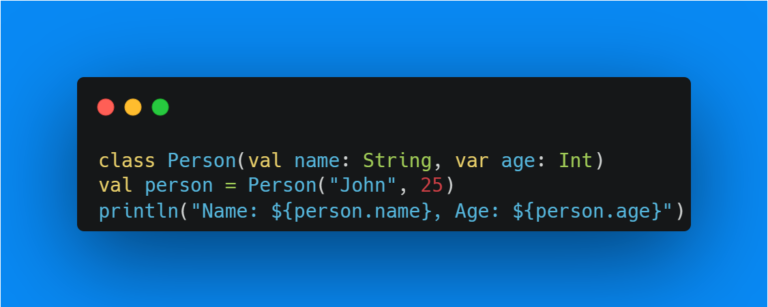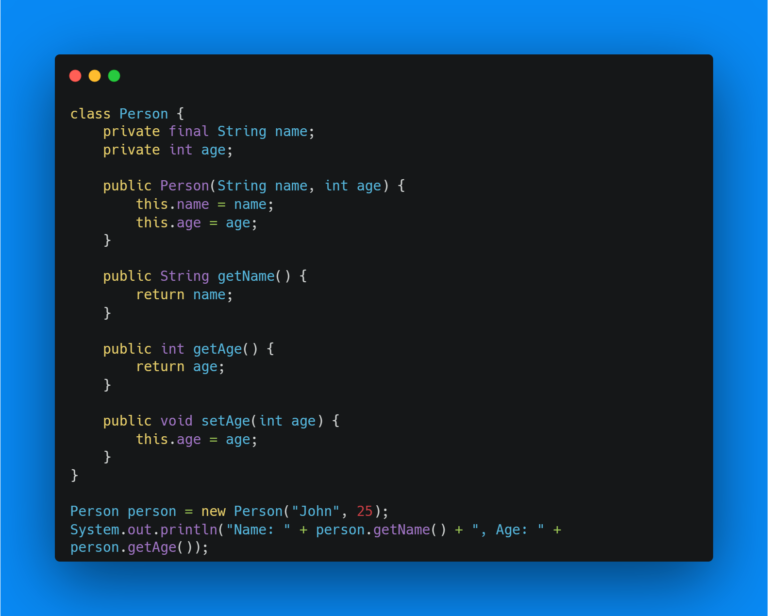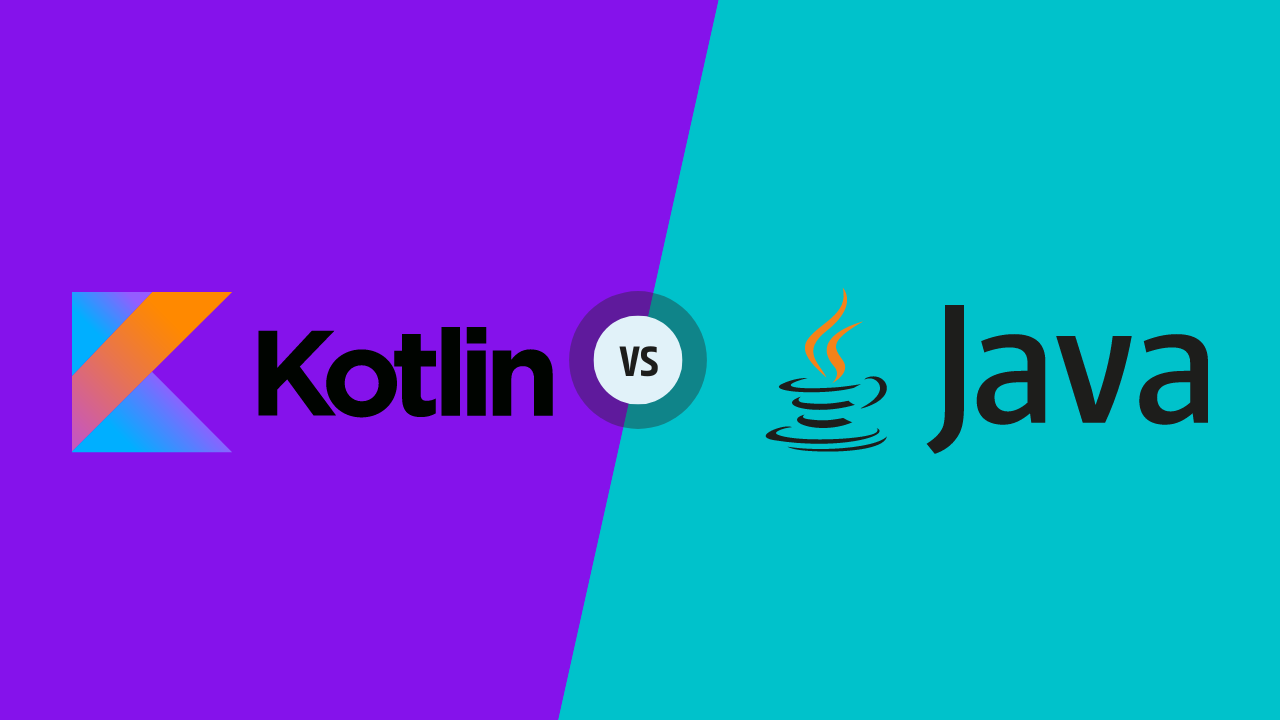Kotlin vs Java is an intriguing debate when it comes to developing applications. There are many programming languages to choose from and two of the most popular choices are Kotlin and Java.
Both languages are powerful, versatile, and suitable for a wide range of projects. However, they have their own unique features and advantages.
In this blog post on Kotlin vs Java, we will be comparing and highlighting their similarities and differences, and discussing their pros and cons. We will look at everything from the syntax and features of each language to their performance and ease of use.
By the end of this post, you should have a clear understanding of the strengths and weaknesses of Kotlin vs Java and be able to make an informed decision about which one is best for your project.
Kotlin vs Java: What are They?
Kotlin
Kotlin is a statically-typed, cross-platform, general-purpose programming language. It is fully interoperable with Java. It was first released in 2016 and has since gained popularity among developers, especially for developing Android apps. Google officially supported it as a first-class programming language for Android development in 2017.
Java
Java is a general-purpose, object-oriented programming language designed to run on a variety of platforms, including Windows, Mac, and Linux. It was first released in 1995 and has since become one of the most widely-used programming languages in the world. It’s commonly used for developing enterprise applications, web applications, and Android apps.
Kotlin vs Java: What are the Features?
Kotlin
Improved type inference and null safety
It is easier to write and maintain code and prevent certain errors using Kotlin’s improved type inference and null safety.
More concise and expressive syntax
Write readable and easy to undertsand code with Kotlin’s concise and expressive syntax.
Improved functional programming features
Kotlin has better support for functional programming features, such as lambda expressions and higher-order functions.
Extension functions
Kotlin allows developers to extend the functionality of a class without modifying its source code using extension functions.
Built-in support for coroutines
Kotlin makes asynchronous programming easier and more efficient with its first-class support for coroutines.
Interoperability with Java
Kotlin’s interoperability with Java makes it easy to integrate with existing Java code.
Support for modern programming paradigms
Kotlin supports modern programming paradigms like functional programming and OOP.
Java
Platform independence
Easily develop cross-platform applications with Java. Because it is available for various platforms.
Large community and resources
With Java you can find solutions to common problems and learn from the experience of other developers due to its large developer community and wide range of libraries and frameworks.
Object-oriented programming
Develop modular and reusable code with Java’s support for object-oriented programming.
Garbage collection
With Java eliminates manual memory management because it has built-in garbage collection. It automatically manages the memory used by an application.
Concurrent programming
Create multi-threaded applications easily with Java’s built-in support for concurrent programming.
Automatic memory management
Java’s built-in and automatic memory management help to manage and clean up memory resources. It is easy to develop large-scale projects with this feature.
Strongly typed
Java is strongly typed, which means that all variables must be declared with a specific data type. This helps to prevent type errors and improves code readability.
Compare Kotlin vs Java Performance
Kotlin vs Java are statically-typed, JVM-based programming languages. They are similar in terms of performance but have minor differences.
One of Kotlin’s advantages over Java is – Kotlin is more concise and expressive making the code easier to write, read and maintain. It also offers improved type inference and null safety, which prevent certain errors.
Kotlin’s inline functions and lambda expressions lead to faster code execution than Java. Because Java’s bytecode for these constructs is usually larger, leading to higher memory consumption. Finally, Kotlin vs Java are suitable for performance-sensitive applications.
| Feature | Kotlin | Java |
|---|---|---|
| Compilation time | Slightly slower than Java | Faster than Kotlin |
| Execution time | Similar or slightly slower than Java | Similar or slightly faster than Kotlin |
| Memory usage | Similar to Java | Similar to Kotlin |
| Code size | Slightly larger than Java | Slightly smaller than Kotlin |
| Garbage collection | Slightly slower than Java | Slightly faster than Kotlin |
Compare Kotlin vs Java Syntax
Kotlin vs Java has similar syntax, as Kotlin was designed to be fully interoperable with Java. However, there are some critical differences between Kotlin vs Java in terms of their syntax.
| Feature | Kotlin | Java |
|---|---|---|
| Null safety | Safe call operator (?.) and non-null assertion operator (!!) for null safety | No built-in null safety features, rely on null checks and manual handling |
| String Interpolation | String interpolation using $ sign | String Concatenation using + operator or String.format() |
| Ternary operator | x ? y : z | x ? y : z |
| Elvis operator | x ?: y | No direct equivalent, must use a ternary operator or x != null ? x : y |
| Default and named arguments | support for default and named arguments in function calls | support only for default arguments in function calls |
| Smart casting | automatic casting of variables based on type | requires explicit casting |
| Lambda Expressions | more concise syntax and support for function types as variable types | less concise syntax |
| Extension functions | allows extending the functionality of a class without inheritance | does not have this feature |
| Properties | concise syntax for defining properties | more verbose syntax |
| Data classes | concise syntax for defining data classes | does not have this feature |
| Type parameter constraints | concise syntax for defining type parameter constraints | more verbose syntax |
| Type inference | improved type inference for variable declaration and function return types | more limited type inference |
Compare Kotlin vs Java Code Examples
The following code shows an example of a simple class between Kotlin vs Java.
Kotlin

Java

In this code, the Kotlin code is more concise, as it uses a primary constructor, and it also uses the “val” and “var” keywords to declare a read-only property and a mutable property, respectively.
Kotlin code uses string interpolation to construct the string output, while Java code uses concatenation.
Compare Kotlin vs Java for Desktop Apps
Kotlin vs Java are suitable for developing desktop applications, as they can be compiled to run on the Java Virtual Machine (JVM). However, there are some differences between the two languages when it comes to developing desktop applications.
Kotlin has better support for modern programming paradigms, such as functional programming.
Java, on the other hand, has been around for a longer time and has a larger community of developers and a wider range of libraries and frameworks available. Java is widely used for developing enterprise applications and is considered more stable and mature.
In terms of performance, both Kotlin and Java are suitable for desktop applications. If you are a developer and you are familiar with the Java ecosystem, then Java would be a good choice. However, if you are looking for a more modern and expressive language, Kotlin could be a better option.
Compare Kotlin vs Java: Which is Easy?
Kotlin vs Java are considered to be relatively easy to learn, especially if you have experience with other programming languages. However, Kotlin is considered slightly easier to learn.
Kotlin is also designed to be fully interoperable with Java, so if you are already familiar with Java, it should be relatively easy to pick up. Additionally, Kotlin has improved functional programming features and support for destructuring declarations.
KOTLIN vs. JAVA: for Android App Development
Kotlin vs Java are suitable for developing Android apps, as the Android operating system supports running Java bytecode on the Dalvik Virtual Machine (DVM) or the Android Runtime (ART). However, there are some critical differences between the two languages when it comes to developing Android apps.
Google officially supported Kotlin as a first-class programming language for Android development in 2017, it’s been gaining popularity among android developers as it brings a lot of features that Java doesn’t have, such as improved type inference, null safety, and more concise and expressive syntax. Additionally, it has better support for functional programming, and improved data classes, making it easier to write and maintain code.
Java, on the other hand, has been the main language for Android development for a long time, so it has a larger community of developers and a wider range of libraries and frameworks available. Additionally, it is considered more stable and mature, and it has been widely used in the industry for developing enterprise applications.
Kotlin vs Java are suitable for Android development. However, Kotlin is considered to be more modern, expressive, and less verbose than Java, making it a good choice for developers who want to take advantage of the latest features and best practices in Android development.
Kotlin vs Java: Major Differences
| Parameters | Kotlin | Java |
|---|---|---|
| Null Safety | Kotlin has built-in null safety features that prevent null pointer exceptions. Variables must be explicitly declared as nullable or non-nullable, which helps prevent null pointer exceptions. | Java does not have these features and developers must manually check for null values to prevent null pointer exceptions. |
| Functional programming | Kotlin has better support for functional programming features, such as lambda expressions and higher-order functions. | Java has limited support for functional programming and it requires more verbose syntax. |
| Concise Syntax | Kotlin provides first-class support for coroutines which makes asynchronous programming easier and more efficient. | Java requires additional libraries and frameworks for coroutines |
| Extension Functions | Kotlin allows developers to extend the functionality of a class without modifying its source code using extension functions. | Java does not support this feature. |
| Coroutines | Kotlin provides first-class support for coroutines which makes asynchronous programming easier and more efficient. | Java requires additional libraries and frameworks for coroutines. |
Kotlin vs Java: List of 5 Major Advantages
Kotlin
Improved type inference and null safety
Kotlin’s improved type inference and null safety features make it easier to write and maintain code and prevent certain errors.
More concise and expressive syntax
Kotlin’s more concise and expressive syntax makes it easier to write readable code.
Improved functional programming features
Kotlin has better support for functional programming features, such as lambda expressions and higher-order functions. This allows developers to write more concise and expressive code.
Extension functions
Kotlin allows developers to extend the functionality of a class without modifying its source code using extension functions.
Built-in support for coroutines
Kotlin provides first-class support for coroutines which makes asynchronous programming easier and more efficient.
Kotlin
Widely used and mature
Java has been around for a long time, and it’s widely used in the industry for developing enterprise applications. It is more stable and mature and has a larger community of developers and a wider range of libraries and frameworks.
Large community and resources
Java has a large community of developers, and a wide range of libraries and frameworks available, which makes it easy to find solutions to common problems and to learn from the experience of other developers.
Cross-platform compatibility
Java is designed to run on a variety of platforms, including Windows, Mac, and Linux, which makes it easy to develop cross-platform applications.
A large number of libraries and frameworks
Java has a large number of libraries and frameworks available, which makes it easy to find solutions to common problems and to learn from the experience of other developers.
Good for large-scale projects
Java is a robust and mature language with strong support for object-oriented programming, making it well-suited for large-scale projects.
Kotlin vs Java: Which is Better for Android Development in 2023
It is 2023 and Android development is not limited to any language or framework. Both Kotlin and Java are better choices to build your ideal android app. Most of these technologies are free but not the developers.
Android Developers are expensive. Be it a Java developer or a Kotlin developer. According to Stackoverflow Survey 2022, the Median salary of Kotlin developers in 2021 was $55071 and increased up to $69318 in 2022. While That Java developer’s salary in 2021 was $51888 and increased up to $64572 in 2022.
It is a lot for a small business or startup. So saving resources while building the ideal product should be your goal. And With us, you’ll be pretty much halfway towards your goal. We will help you save your resources and also provide you with the top 3% of remote developers to turn your project into a success.
We offer pre-vetted remote developers within 48 hours. If matched with your developer, you will get a 15 days risk-free trial. We also offer feedback sessions, project improvement sessions along with upskilling of developers. Contact us and we can talk about your project and help you choose the best Android development technology between Kotlin vs Java.
Reduce Your Long Hiring Process Into 3 steps with Optymize
Hire Pre-Vetted Developers in 72 Hours with a 15 Day Risk-Free Trial Period
Hire Remote DevelopersKotlin vs Java: FAQs
What is the difference between Kotlin and Java?
Kotlin is a modern programming language that is fully interoperable with Java. It has a more concise and expressive syntax, improved type inference and null safety, improved functional programming features, and better support for coroutines. Java, on the other hand, is a mature and widely-used programming language that has been around for over two decades.
Can I use Kotlin for Android development?
Yes, Kotlin is officially supported by Google as a first-class programming language for Android development since 2017. It provides a lot of features that Java doesn't have, such as improved type inference, null safety, and more concise and expressive syntax, making it a good choice for developing Android apps.
Can I use Java for Android development?
Yes, Java is the primary language for Android development, it has been the main language for Android development for a long time, so it has a larger community of developers and a wider range of libraries and frameworks available.
Can I use Kotlin with existing Java code?
Yes, Kotlin is designed to be fully interoperable with Java, which means that you can use it with existing Java code, and it's easy to integrate with existing Java projects.
Is Kotlin faster than Java?
Both Kotlin and Java are statically typed, JVM-based programming languages and they are generally similar in terms of performance. Kotlin's inline functions and lambda expressions can lead to faster code execution than Java, as the Java bytecode for these constructs are usually larger, leading to higher memory consumption. However, the choice between the two often comes down to personal preference or the specific requirements of a given project.







